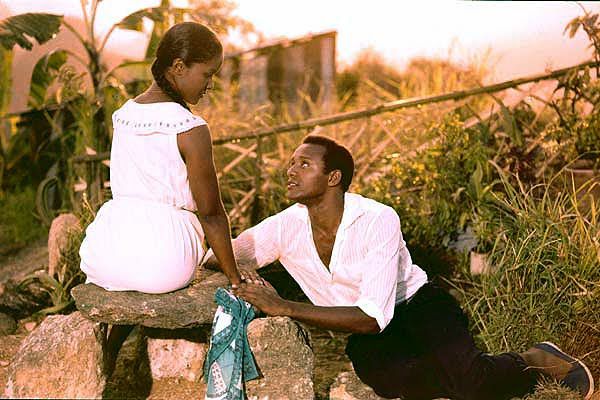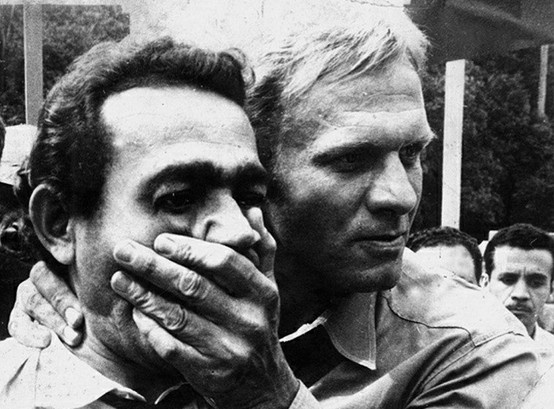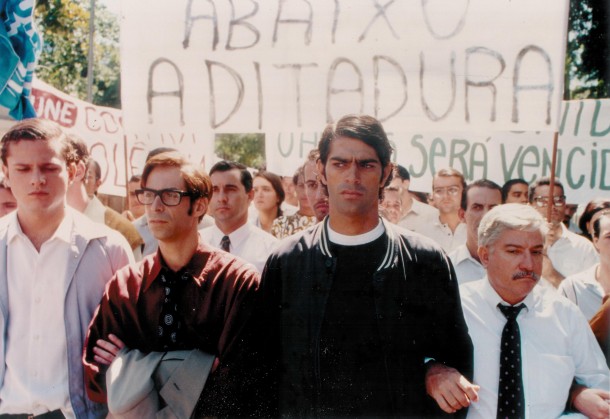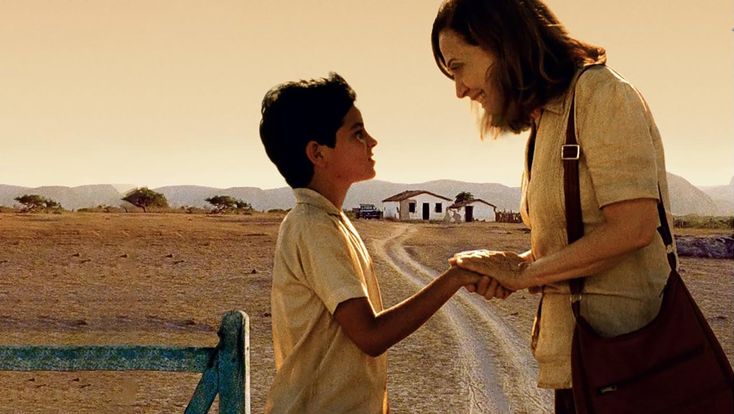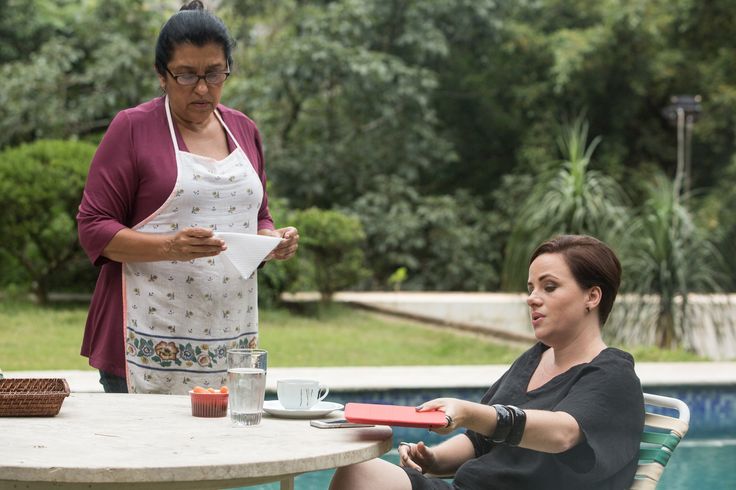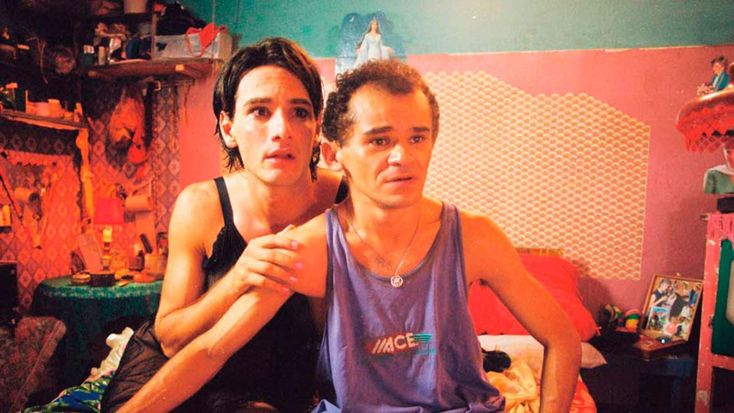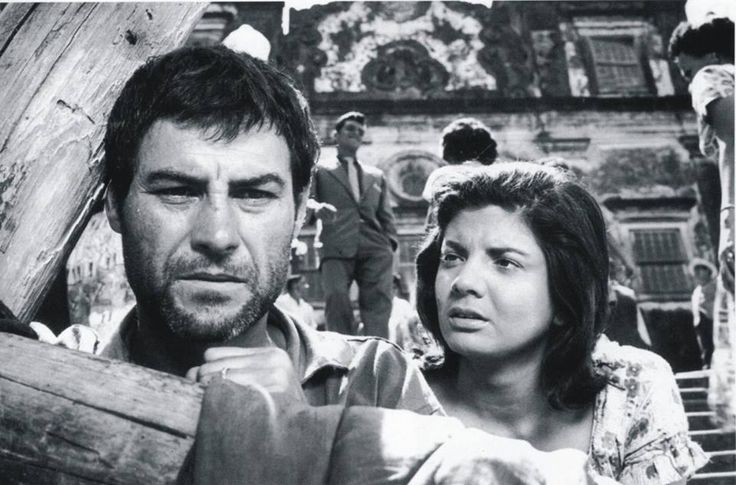Before looking at the list of the Best Brazilian movies to watch, it’s important to know that In a country like Brazil, cinema has been with the nation since the birth of the medium. Only months after the Lumiere Brothers unveiled their newest invention, Rio de Janeiro found itself in one of the world’s first exhibitions of motion pictures as a medium. At the turn of the century, and the arrival of the 1900s, film became something very popular in Brazil, which had been almost independent of the Portuguese for a century by that point.
However, while film was popular within the country, many of these movies weren’t exported for international consumption. Silent films were all the rage in Brazilian culture during the early periods of film, although a lack of representation could be seen among the stars of the period.
But it wasn’t until after World War II that the country’s national cinema scene began to pick up steam and create the industry that is known today. Telenovelas even became a concept in the ’40s and were a part of Brazilian entertainment, and directors began to focus on diversity and critical commentary on class and politics within their films.
Today, Brazilian movies are an excellent glimpse into life in the Latin American country because of how they continue this tradition of casting a critical gaze towards the culture. Here are 10 must-watch Brazilian movies to get you started.
Discover more about Brazilian culture and deepen your language skills by visiting the Learn Portuguese section of my blog. Explore interactive lessons, language exercises, and resources designed to enhance your learning experience. Immerse yourself in the beauty of Brazilian culture through language and bring a new level of authenticity to your language journey!
Key Takeaways:
- Explore the rich heritage of Brazilian cinema with these top picks
- Discover the best Brazilian movies to watch that offer a unique perspective
- Dive into a variety of genres and themes, from crime dramas to coming-of-age stories
- Experience the vibrant culture and societal issues depicted in these award-winning movies
- Expand your cinematic horizons by immersing yourself in the best of Brazilian cinema
Black Orpheus (1959)
Marcel Camus’ Black Orpheus made a significant impact when it was released in 1959. The film received international acclaim, winning prestigious awards such as the Palme d’Or and the Academy Award for Best International Feature Film. However, it also faced criticism from Brazilians for its portrayal of the country and its people.
Based on the Greek legend of Orpheus and Eurydice, Black Orpheus transports the story to a slum in Rio de Janeiro during carnival season. The film is filled with vibrant music and centers around the hope that the jilted lovers can sustain their romance. Despite its accolades, Black Orpheus serves as a reminder of the complexities and challenges of creative collaboration with local populations. Some argue that the film would have been different if directed by a local filmmaker instead of Marcel Camus, a French director.
As viewers, it is crucial to approach Black Orpheus with an awareness of its flaws and critically analyze what it truly means to be Brazilian, free from the lens of an outsider. By examining the movie through a discerning perspective, we can gain deeper insights into the diverse cultural nuances and realities of Brazil that extend beyond the surface portrayal in the film.
“Black Orpheus serves as a reminder of the complexities and challenges of creative collaboration with local populations.”
City of God (2002)
City of God is an epic crime movie set in a suburb of Rio de Janeiro known as “City of God.” This working-class neighborhood, built in the ’60s as a housing project, becomes the backdrop for a gripping tale of organized crime and survival in the slums. The story begins with three thieves on the run, hiding out from the police in City of God. When they rob a motel, a brutal massacre ensues, forcing them to confront the harsh realities of their environment.
As the years pass, organized crime takes hold of the favela, leaving its residents to navigate a world fraught with danger and desperation. City of God sheds light on the struggles faced by those living on the fringes of society, challenging the judgments made by those in higher socioeconomic classes. Through its authentic portrayal of everyday people fighting for survival, this epic crime movie humanizes the residents of City of God and provides a poignant reflection on the lengths people will go to in order to protect themselves and their loved ones.
Key Highlights:
- Set in the working-class neighborhood of City of God in Rio de Janeiro
- Epic crime movie depicting the harsh realities of life in the slums
- Explores the influence of organized crime in the favela
- Offers a glimpse into the daily struggles faced by residents
- Challenges preconceptions about those living in poverty
“City of God exposes the raw and often brutal reality of life in the slums of Rio de Janeiro. Through its powerful storytelling and authentic portrayal of characters, this film provides a gripping and thought-provoking commentary on organized crime and survival in one of Brazil’s most notorious neighborhoods.”
Elite Squad (2007)
When Elite Squad was released in 2007, it became a massive success in Brazil. To everyone’s surprise, the film went on to win the prestigious Golden Bear at the Berlin Film Festival. Set on the eve of Pope John Paul II’s visit to Brazil, the movie follows the story of Roberto, a captain with the special police. As the Pope’s arrival approaches, the special police plan a crackdown on the favelas, the poorest neighborhoods in the country.
Elite Squad delves deep into the role of the police in enforcing state violence in Brazil, particularly in the marginalized communities. The film raises gritty issues of corruption and showcases the shocking reality faced by many people, especially those in the capital city.
This critically acclaimed film gives an unfiltered glimpse into the underbelly of Brazilian society, exposing the complexities of power dynamics, corruption, and the desperate struggle for survival in the face of systemic oppression.
| Release Year | Festival Awards | Genre | Main Themes |
|---|---|---|---|
| 2007 | Golden Bear at Berlin Film Festival | Action, Crime, Drama | State-enforced violence, crackdown on favelas, corruption |
Entranced Earth (1967)
In the realm of the Best Brazilian movies to watch, one film that stands out is “Entranced Earth” (1967). Directed by the renowned Glauber Rocha, this masterpiece emerged as part of the influential Cinema Novo movement in Brazil during the 1960s.
The film revolves around a writer who finds himself entangled in a unique predicament. Having switched political parties in his youth, he believed in the liberal candidate’s promises. However, when the candidate wins the election only to disappoint, it sets off a series of peculiar circumstances.
Originally banned in Brazil due to its provocative content, “Entranced Earth” achieved global acclaim and even won an award at the prestigious Cannes Film Festival. Despite some plot issues, the film’s cinematography is a visual delight, showcasing the impeccable craftsmanship of the era.
Award-Winning Cinema Novo
The Cinema Novo movement, of which “Entranced Earth” is a prime example, emerged as a compelling response to the social and political issues prevalent in Brazil during the 1960s. This revolutionary movement aimed to depict the realities of Brazilian society and challenge the existing cinematic conventions.
“Entranced Earth” captures the essence of Cinema Novo with its thought-provoking narrative and stylized cinematography.
The film explores the complexities of Brazilian politics and offers a critical commentary on the turbulent socio-political landscape. Through its mesmerizing visuals and evocative storytelling, “Entranced Earth” delves into the depths of human emotions, revealing the dichotomy between idealism and harsh reality.
A Cinematic Triumph
Despite its initial ban and subsequent controversy, “Entranced Earth” remains an important piece of Brazilian cinema. The film showcases the immense talent of Glauber Rocha and his ability to captivate audiences with his unique storytelling techniques.
The Cannes award bestowed upon “Entranced Earth” solidifies its position as a cinematic triumph. It serves as a reminder of the power of cinematography to engage and provoke thought.
While the film may have its flaws, its visual splendor and exploration of political themes make it a compelling watch for film enthusiasts and admirers of Brazilian cinema alike.
Discover more about Brazilian culture and deepen your language skills by visiting the Learn Portuguese section of my blog. Explore interactive lessons, language exercises, and resources designed to enhance your learning experience. Immerse yourself in the beauty of Brazilian culture through language and bring a new level of authenticity to your language journey!
Four Days in September (1997)
Released in 1997, Four Days in September is a gripping drama that is loosely based on real events. The movie takes inspiration from the kidnapping of the American Ambassador to Brazil in 1969 by members of two political organizations. While the film is a dramatized and fictionalized account of the kidnapping, it provides a unique perspective on real-world events.
The story revolves around the protesters and comrades involved in the kidnapping and explores the motivations and decisions that led them to take such drastic actions. Four Days in September sheds light on the other side of world events, offering a different narrative from what is often portrayed in Hollywood movies. Through this gripping film, viewers can gain a deeper understanding of the complexities and motivations behind such actions.
In addition to its powerful storytelling, Four Days in September offers a thought-provoking examination of political organizations and their impact on global affairs. By delving into the perspectives of those involved, the movie prompts viewers to question their own understanding of world events and the factors that drive individuals to extreme measures.
With its captivating plot, nuanced characters, and exploration of real-world events, Four Days in September is a must-watch film for anyone interested in political intrigue and the complexities of world affairs.
The Way He Looks (2014)
The Way He Looks is a heartfelt and poignant LGBTQ+ coming-of-age movie that perfectly captures themes of independence, gentleness, and disabilities. This Brazilian film received critical acclaim at the Berlin International Film Festival, where it won awards for its exceptional storytelling and performances.
The story revolves around a high school student who is blind and yearns for more independence in his life. Alongside his best friend, they navigate the challenges of teenage life and lament the lack of romantic prospects. However, their lives take an unexpected turn when a new student arrives, creating the possibility for change and self-discovery.
The Way He Looks beautifully explores the journey of its disabled protagonist, offering a touching portrayal of the ups and downs he experiences as he seeks greater independence. The film’s tender-hearted approach and the gentle nature of its characters make for a captivating and emotional viewing experience.
| Director | Daniel Ribeiro |
|---|---|
| Main Cast | Ghilherme Lobo, Fabio Audi, Tess Amorim |
| Genre | Coming-of-Age, Drama |
The Way He Looks is a captivating exploration of identity, self-discovery, and the power of human connections. It beautifully portrays the challenges and triumphs faced by individuals with disabilities, offering a message of hope and resilience.
Central Station (1998)
In 1998, a classic road trip film titled “Central Station”, one of the best Brazilian movies to watch, was released, offering a unique and captivating cinematic experience. The movie combines elements of a traditional road trip with unexpected twists, resulting in a truly unforgettable story.
At the heart of the film is Dora, a former schoolteacher working at Central Station in Rio de Janeiro. Initially portrayed as a cynic, Dora undergoes a remarkable transformation when a woman she knows passes away, leaving behind her nine-year-old son without a home. Dora takes the young boy in and, through their interactions, begins to evolve as a person.
One of the standout aspects of “Central Station” is the masterful characterization exhibited by the cast, especially Fernanda Montenegro, who portrays Dora. Her performance in the film earned her the prestigious Academy Award for Best Actress, making her the first Brazilian and Latin American actress to achieve this honor.
The movie’s gentle and poignant narrative, coupled with its exceptional characterization, solidifies “Central Station” as a true gem in Brazilian cinema. It serves as a testament to the power of storytelling and the transformative nature of human connections.
Through the journey of Dora and the young boy, “Central Station” explores themes of compassion, personal growth, and the importance of human relationships. The film’s twists and turns keep viewers engaged, while its central message resonates long after the credits roll.
The Second Mother (2015)
Released in 2015, The Second Mother received high praise in Brazil and internationally. The film made its premiere at the Sundance Film Festival before its theatrical release in Brazil. It tells the story of Val, who moves to São Paulo to work and provide a better life for her daughter. Val becomes a housemaid for a wealthy family and forms a close bond with their young son. However, her daughter grows resentful of her absence. Through the lens of Val’s experience, The Second Mother provides an intimate glimpse into the socioeconomic divides in Brazil and the strain it causes on families. The film goes beyond these themes to offer thought-provoking insights into various aspects of human relationships and societal dynamics. Its nuanced characterizations and compelling storytelling make it a movie that warrants multiple viewings.
Carandiru (2003)
The story behind Carandiru is not a light one. Set within the Carandiru Penitentiary, which formerly was the biggest prison in Latin America, the movie is a searing glimpse into life behind bars in this prison. Different inmates are highlighted throughout the movie, showing how they got to this point, but all of this culminates in tragedy in the end. Carandiru is based on real events and even used real prisoners as actors throughout many scenes. This movie is a form of realism that’s haunting to watch, showing how many people who end up in prison are victims of their circumstances and deserve empathy, especially when they’re treated without the respect they deserve.
| Key Themes | Main Characters | Genre | Release Year |
|---|---|---|---|
| Realism, Empathy, Humanization | Inmates of Carandiru Penitentiary | Drama | 2003 |
Keeper of Promises / O Pagador de Promessas (1962)
Keeper of Promises, which is also known by its Portuguese name of O Pagador de Promessas, came out in Brazil in 1962. This religious drama tells the story of a man named Zé, who carries a cross for miles in order to fulfill a promise. Along the way, he faces resistance from the clergy and encounters individuals who question his intentions. Keeper of Promises is a powerful exploration of tradition and the importance of personal faith. The film was the first and only Brazilian movie to win the Palme d’Or at the Cannes Film Festival.
Conclusion
Brazilian cinema is a treasure trove of the best Brazilian movies that encompass a wide range of genres and themes. From gripping crime dramas to heartwarming coming-of-age stories and thought-provoking social commentaries, these films offer a unique glimpse into Brazilian culture and society. Whether you’re a fan of arthouse cinema or simply looking to expand your cinematic horizons, exploring the top Brazilian films is an enriching and worthwhile experience.
Internationally acclaimed classics such as Black Orpheus and City of God have captivated audiences with their artistic excellence and powerful storytelling. These movies showcase the vibrancy of Brazilian culture and the talents of its filmmakers. Meanwhile, more recent hits like The Second Mother and The Way He Looks continue to receive critical acclaim for their compelling narratives and exceptional performances.
By immersing yourself in the Best Brazilian movies to watch, you’ll gain a deeper understanding of the country’s history, traditions, and social issues. These films offer a window into Brazilian society, shedding light on its complexities, triumphs, and struggles. Whether you’re moved by the raw realities of Carandiru or captivated by the resilience of characters in Central Station, each film leaves an indelible mark on its viewers.
So, whether you’re searching for cinematic masterpieces or simply seeking out new and exciting international films, don’t miss out on the best Brazilian movies to watch. Let these captivating stories transport you to the vibrant world of Brazilian cinema and open your eyes to the rich tapestry of Brazilian culture.
Discover more about Brazilian culture and deepen your language skills by visiting the Learn Portuguese section of my blog. Explore interactive lessons, language exercises, and resources designed to enhance your learning experience. Immerse yourself in the beauty of Brazilian culture through language and bring a new level of authenticity to your language journey!
FAQ
What are some Best Brazilian movies to watch?
Some of the Best Brazilian movies to watch include Black Orpheus (1959), City of God (2002), Elite Squad (2007), and Central Station (1998), among others.
What is Black Orpheus about?
Black Orpheus is a film directed by Marcel Camus that tells the story of Orpheus and Eurydice, transplanted into a Rio de Janeiro slum during carnival. It is known for its vibrant music and portrayal of Brazilian culture.
What is City of God about?
City of God is an epic crime movie set in a suburb of Rio de Janeiro known as the “City of God.” It follows the lives of three thieves and explores organized crime in the slums of Brazil.
What is Elite Squad about?
Elite Squad is a film that focuses on the role of the special police in Brazil and their crackdown on the favelas (poorer neighborhoods) in preparation for the Pope’s visit. It delves into issues of state-enforced violence and corruption.
What is Entranced Earth about?
Entranced Earth, directed by Glauber Rocha, is a film that tells the story of a writer who faces a unique set of circumstances after switching political parties. It was part of the Cinema Novo movement in Brazil and is known for its stunning cinematography.
What is Four Days in September about?
Four Days in September is a film loosely based on real events in which the American Ambassador to Brazil was kidnapped by political organizations. It offers a different perspective on world events and explores the motivations behind certain actions.
What is The Way He Looks about?
The Way He Looks is an LGBTQ+ coming-of-age movie that follows a blind high school student searching for independence and love. It is a tender and gentle exploration of personal growth and acceptance.
What is Central Station about?
Central Station is a classic road trip film set in Rio de Janeiro. It revolves around Dora, a cynic who forms a unique bond with a young boy. The movie offers a master class in characterization and earned its lead actress, Fernanda Montenegro, an Academy Award.
What is The Second Mother about?
The Second Mother is a highly acclaimed film that examines socioeconomic divides in Brazil through the story of a housemaid and her relationship with a wealthy family and her own daughter. It offers thought-provoking insights into class dynamics and family dynamics.
What is Carandiru about?
Carandiru is a film set in the Carandiru Penitentiary, the largest prison in Latin America. It offers a haunting glimpse into life behind bars and showcases the experiences of different inmates. Based on real events, the film humanizes individuals caught in a system marked by poverty and injustice.
What is Keeper of Promises about?
Keeper of Promises, also known as O Pagador de Promessas, is a religious drama that follows the journey of a man named Zé as he carries a cross to fulfill a promise. It explores tradition, resistance, and personal faith, and it won the prestigious Palme d’Or at the Cannes Film Festival.
